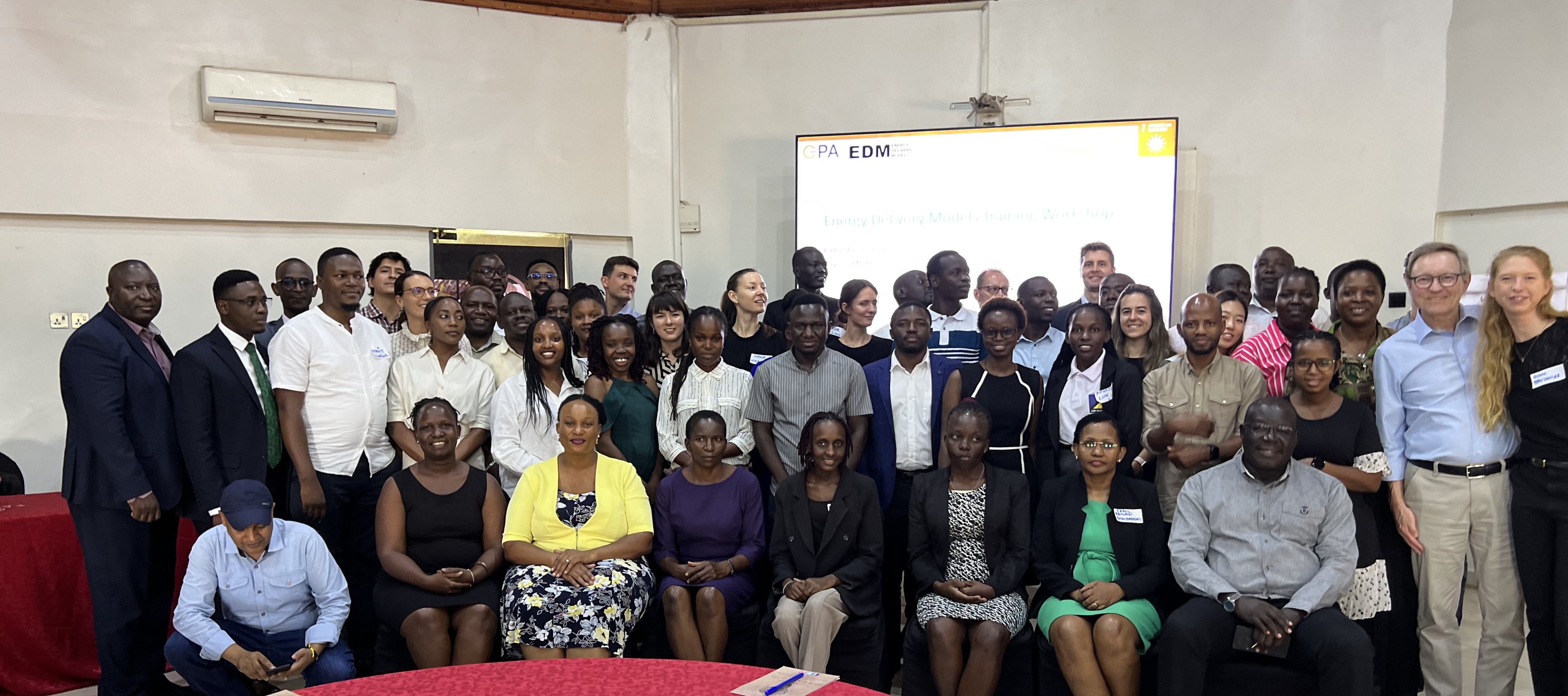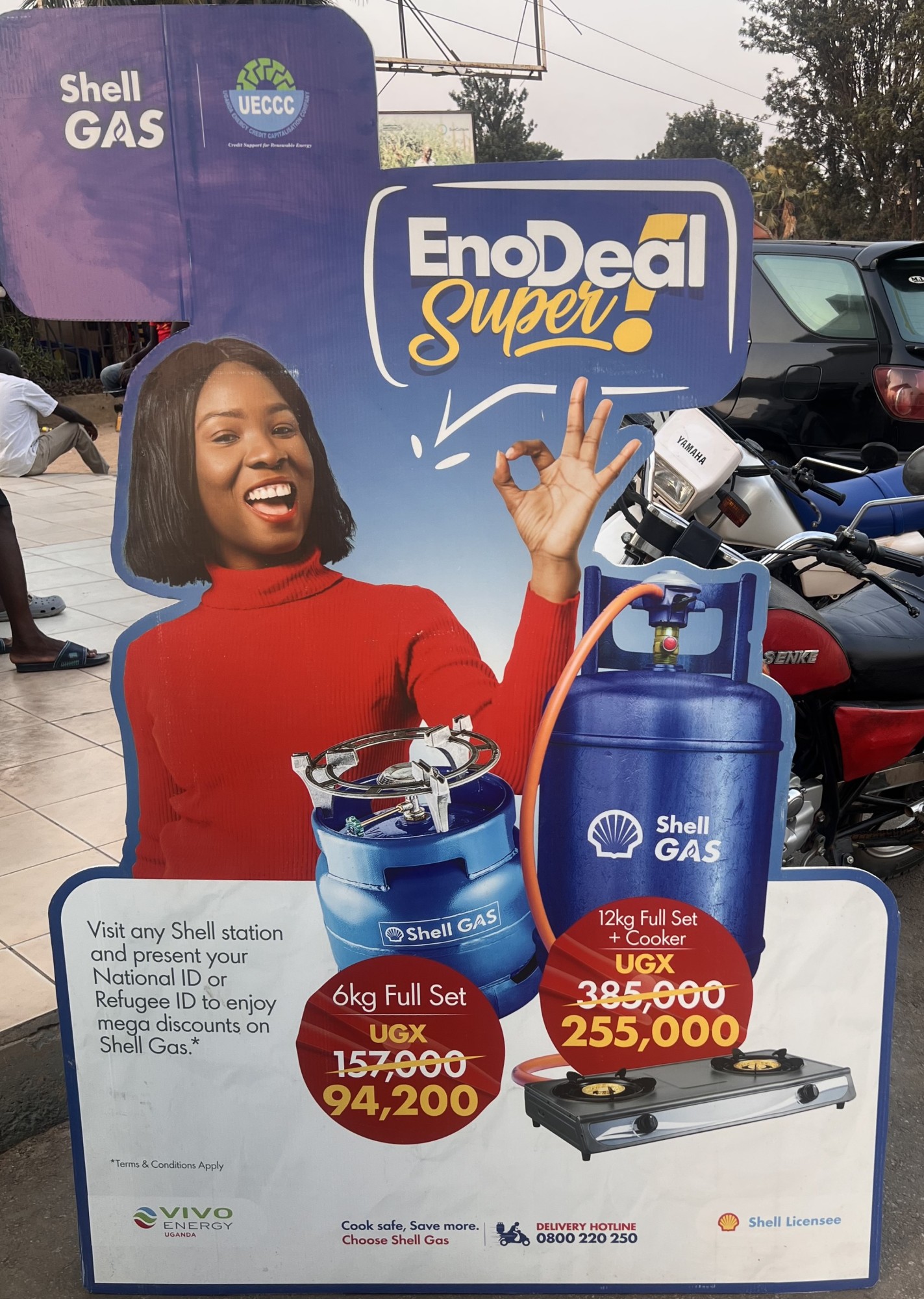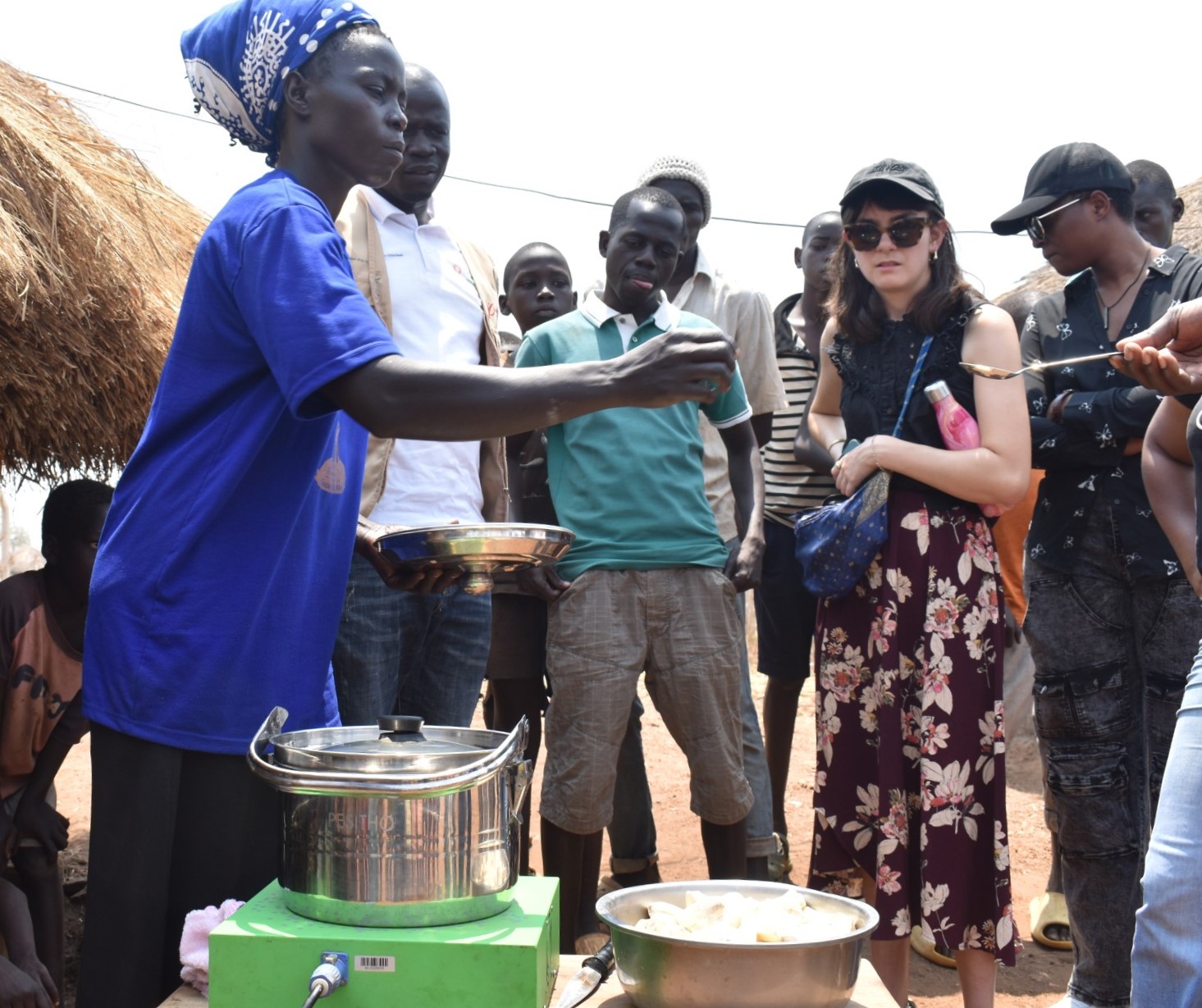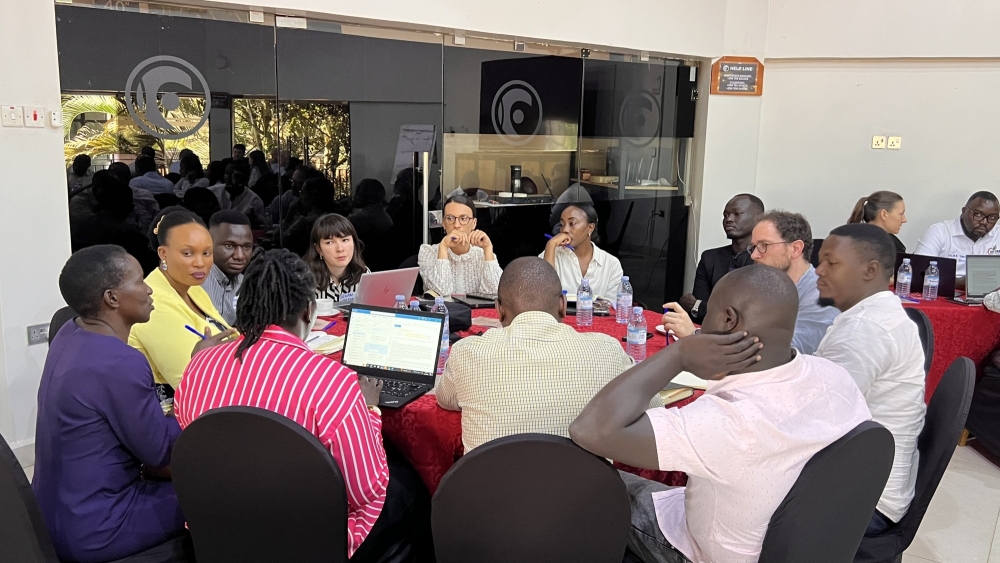In this section
In this section
Access to clean energy is a critical driver for achieving numerous development goals, yet it remains severely limited for forcibly displaced communities worldwide. In Uganda, over 90% of households use biomass (firewood + Charcoal) to cook, placing a significant strain on the environment and causing serious health effects. Most refugee settlements are not connected to the national electricity grid. For those that are, the connection tends to be limited to trading centres and social institutions, meaning that households and businesses rely on expensive, unreliable sources of lighting like disposable dry cell battery torches or candles. To enhance the availability of high quality, sustainable energy solutions, humanitarian organisations are increasingly working with private sector companies to serve displacement-affected communities. This requires piloting innovative business and financing models to mitigate risks for the private sector and increase the affordability for end-users.
To support the development of sustainable energy projects that use market-based approaches, team members from the Global Platform for Action on Sustainable Energy in Displacement Settings Coordination Unit (GPA CU), hosted at UNITAR, and from Mercy Corps visited Uganda between 24 February – 3 March 2025. The GPA CU team conducted a two-day Sustainable Energy Project Design Workshop (using the Energy Delivery Models methodology), bringing together public, non-governmental and private sector partners to design sustainable financial models for energy access in displacement settings. This was followed by the Transforming Humanitarian Energy Access (THEA) programme Uganda kick off workshop on 27 February, led by Mercy Corps, with partners GPA CU and Ashden. The GPA and Mercy Corps teams then jointly visited the Bidibidi refugee settlement in Yumbe District (Northern Uganda) to learn more about the work carried out by Mercy Corps, IOM, ECOCA East Africa and other partners to improve access to clean energy for both refugees and host communities.
Energy Delivery Models (EDM) Project Design Workshop
The EDM workshop welcomed participants from local and international NGOs, UN agencies, national government entities, the private sector, community and refugee-led organisations, and finance institutions. The primary objective was to provide tailored support and mentorship to organisations delivering or facilitating energy access in displacement settings, with a particular focus on informing the development of sustainable business and financing models, and partnerships with the private sector.
The in-person workshop followed the participants’ completion of self-paced online EDM training modules covering hands-on design of energy delivery models and approaches to sustainable project development. The online training was accompanied with the 2-day workshop in Kampala, as an opportunity for participants to receive further tailored support and guidance from mentors from the GPA CU, Mercy Corps, CLASP, UECCC, NORCAP, USEA, NREP, U-Learn/Impact Initiatives, and A2EI, to refine their project ideas, especially on refining the business and financial models. Each project team received one-to-one mentoring with thematic expertise spanning business model development, innovative financing, data and monitoring for energy access innovation, clean cooking, e-waste management and productive uses of energy. On the second day of the workshop, participants were joined by representatives from financial institutions and the private sector who worked side by side with project teams on co-developing their project ideas. At the end of the second day, the five project teams with the most advanced project ideas were selected to present their final project proposals to a jury. Going forward, participants will receive continued expert support to further develop and ultimately implement their projects, with the goal of leveraging different financing options for project implementation. Testimonials from some mentors and participants of the workshop can be accessed here.
Now in its fourth edition, and the first to be delivered in person, the EDM training was highly valued by participants. It provided a platform for learning, expert guidance, collaboration, and the exchange of ideas, helping to identify synergies across various organizations' activities in the humanitarian energy access sector. The GPA looks forward to delivering the EDM training in other countries so as to improve the scale and sustainability of clean energy access projects in humanitarian settings.
Transforming Humanitarian Energy Access (THEA) Inception Workshop
The work on developing new project concepts continued the following day at the inception workshop of the Transforming Humanitarian Energy Access (THEA) programme, which is funded by the UK government via the Transforming Energy Access platform and implemented by Mercy Corps in partnership with the GPA and Ashden. A group of humanitarian organisations, development practitioners, energy companies and refugee enterprises met to explore ways to leverage private sector engagement and innovative financing mechanisms to meet the energy needs of displaced people and their host communities. Participants worked in groups to further develop and refine project concepts for market-based energy interventions, including e-cooking and solar nano-grids for productive use. At the event, Mercy Corps also launched its new Renewable Energy Strategy for Uganda which focuses on disseminating best practices, improving the regulatory environment for renewable energy, and building value driven partnerships.
A key question which was discussed at the workshop was how to incentivise and support private companies to operate in displacement settings by leveraging de-risking mechanisms, including increasing access to working capital for companies and subsidies for last mile customers. Another topic that featured prominently was the increasing integration of displacement settings in national energy programmes and policies, most notably in the Uganda Energy Credit Capitalisation Company (UECCC) subsidy programme. While most participants welcomed this development, they highlighted the specific barriers that remain for displaced communities, including access to land and finance, which require tailored programming.
Yumbe District and Bidibidi Refugee Settlement visit
After the workshops, the GPA CU and Mercy Corps teams travelled to the Bidibidi refugee settlement in Yumbe district, Northern Uganda, to visit Mercy Corps’ project sites and partners. On our way to Bidibidi, we came across Shell Gas, one of Uganda Energy Credit Capitalisation Company (UECCC)’s ESCOs, which, through UECCC’s price subsidy program, is offering LPG to customers at a reduced price - approximately 40% off for small canisters and 34% off for large canisters. UECCC officially launched its Price Subsidy Program for Clean Energy Technologies in December 2024.
Funded by the World Bank and the Government of Uganda, the program aims to reduce the affordability barrier for households and enterprises seeking clean energy solutions by providing results-based financing to over 67 Energy Service Companies (ESCOs).
The initiative provides significant price discounts, ranging from 30 to 60%, on a range of technologies, including off-grid solar systems, clean cooking solutions, and productive use equipment. The program's goal is to provide Ugandans with affordable, sustainable energy solutions while supporting the National Electrification Strategy, which aims for 50% off-grid energy access by 2030.
 |
Shell GAS, one of UECCC’s ESCOs, offering subsidised LPG under the UECCC Price Subsidy Program |
While in Yumbe district, the team visited a small holders farmer’s group that has been using a solar irrigation system which they had purchased through Mercy Corps’ Powering the Uptake of Climate Change Mitigating Pumps - Uganda Project (PUMP-UP). Launched in 2023, the Danish Green Business Partnership (DGBP) funded Pump-Up project aims at facilitating the adoption of solar irrigation technologies among smallholder farmers along with the integration of climate smart agricultural practices and water resource management. This enables year-round production of high value horticultural crops such as cabbages, tomatoes, watermelon, and cowpeas for household use and market sales. The project provides farmers with climate-resilient seeds, training, and PAYGO financing options to facilitate the adoption of solar irrigation systems sold by Ugandan company Tulima Solar. Farmers can pay for the pumps in installments over a period of six months, which helps make the cost of UGX 1.8 million more affordable. With access to solar-powered irrigation, farmers have significantly increased their productivity, particularly in the dry season. A notable success story is Mawa Samira’s farm; since adopting the system, she now earns approximately UGX 4 million annually from cabbage sales alone, achieving over 100% return on investment in less than 6 months.
The team also visited the innovation centre in Bidibidi refugee settlement run in by Mercy Corps and IOM. Launched two years ago, the e-waste project focuses on the safe disposal and recycling of e-waste, with a primary focus on a circular model that includes repairing small devices like solar home systems and lanterns, radios, and torches. Trained technicians, supported by BrightLife and other partners, provide essential repair services, which were initially free, but now follow a pricing model based on a willingness to pay assessment that was recently conducted in the community. Despite challenges such as the diverse range of electronics and limited spare parts in the area, the technicians skillfully repair and repurpose e-waste materials. One of the most exciting features of the innovation centre is the BatLab, in which batteries are tested, sorted and repurposed into battery packs which can charge small devices. The battery packs are currently being tested by the Uganda National Bureau of Standards with aspirations to obtain certification and sell them in the settlement.
The day concluded with a visit to Charity’s home – a refugee who purchased the ECOCA solar electric cooking system sold by ECOCA East Africa through Mercy Corps’ Journey to Scale project and has been using it for over 4 years. Having fully paid off the cookstove in monthly installments, Charity continues to enjoy smoke-free, comfortable cooking daily and particularly appreciates the fact that she saves much time from not having to collect firewood anymore.

Charity, a refugee from South Sudan, has been using the ECOCA solar cookstove for four years. She likes that it is smoke-free and that she no longer needs to collect firewood.
Advancing renewable energy solutions in displacement settings
Inspired by the projects that were developed in the workshops and from the insights from the projects in Bidibidi, the GPA CU, Mercy Corps and Ashden’s teams are eager to move forward with supporting the implementation of new projects as well as the replication and scale up of existing work. Key to this will be using the insights generated from the THEA programme on leveraging effective and scalable energy delivery models through partnerships and innovative financing mechanisms. Through actionable learnings on how to advance renewable energy solutions in contexts of forced displacement, the teams aim to drive impactful change for refugees and host communities. Ultimately, these efforts to create sustainable, adaptable, market-driven solutions will contribute to building more resilient energy systems that improve livelihoods, enhance economic opportunities, and support long-term development in displacement settings.
This blog was written by: Iwona Bisaga (GPA, UNITAR, NORCAP), Carine Buma (GPA, UNITAR), Megan Lee Taeuber (Mercy Corps), Aimee Jenks (GPA, UNITAR), and Purity Kendi Gituma (Mercy Corps, NORCAP).
Last updated: 17/04/2025









